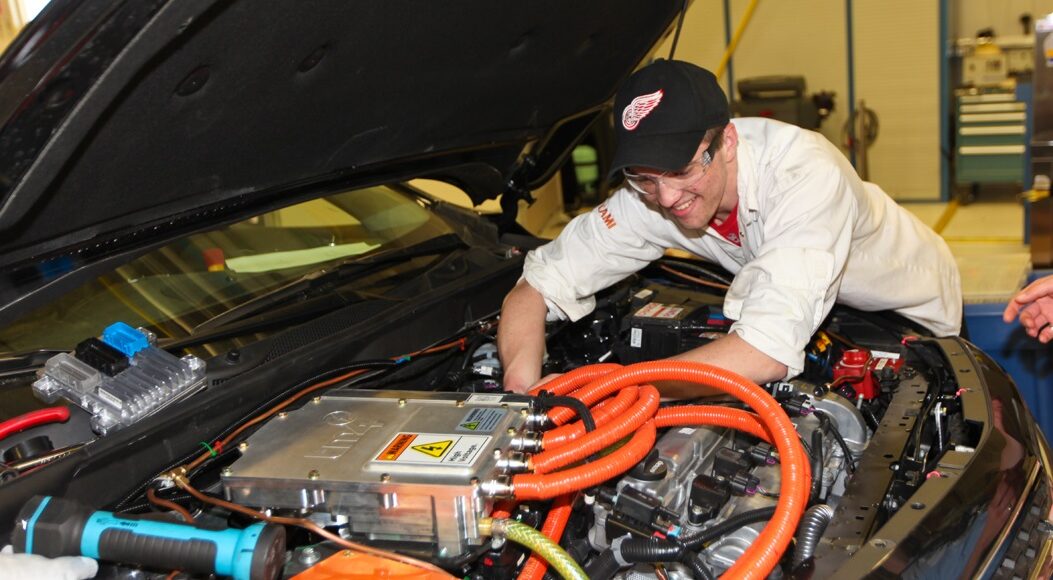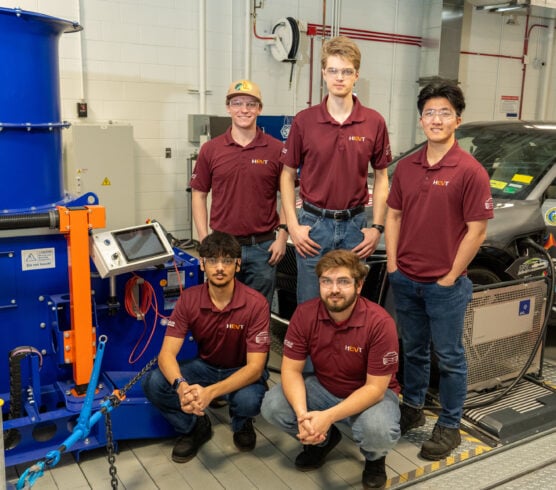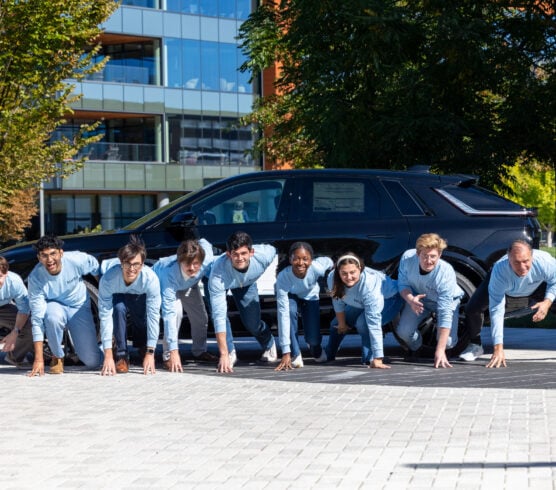Powering the electric vehicle sector of the future starts with innovative public-private partnerships between industry, government and academia driving technology advancement through training and skills development. That’s why the Battery Workforce Challenge Program on behalf of the U.S. Department of Energy, Stellantis, and Argonne National Laboratory announced 12 universities and partnering vocational schools participating in the first-of its-kind Battery Workforce Challenge collegiate competition.
The competition tasks 12 selected universities, along with their vocational partners, to design, build, test and integrate an advanced EV battery into a future Stellantis vehicle, which will be announced in early 2024. The three-year competition will culminate in 2026, with the winning teams receiving dozens of annual engineering and sponsor-related category awards, $100,000 in industry-provided prize money, and invaluable employment, collaboration, and networking opportunities with industry leaders.
The Battery Workforce Challenge Program will inspire a robust workforce within the EV battery sector through multiple educational platforms that will help the U.S. DOE achieve net-zero emissions across industries by 2050 and advance the Stellantis goal of becoming a carbon net-zero corporation by 2038.
The competition is part of the broader Battery Workforce Challenge Program, which also includes regional training with vocational and community colleges, youth education in STEM and an online tool for career and technical education. The program is dedicated to cultivating a cohort of skilled engineers, technicians and workers to propel domestic battery technology forward.
Selected universities and vocational partners include:
- California State University, Los Angeles (Los Angeles, Calif.) and Cerritos College (Norwalk, Calif.)
- Clemson University (Clemson, S.C.) and Greenville Technical College (Greenville, S.C.)
- Colorado School of Mines (Golden, Colo.) and Arapahoe Community College (Littleton, Colo.)
- Jackson State University (Jackson, Miss.) and Hinds Community College (Utica, Miss.)
- McMaster University and Mohawk College (Ontario, Canada)
- The Ohio State University and Columbus State Community College (Columbus, Ohio)
- Rose-Hulman Institute of Technology and Ivy Tech Community College (Terre Haute, Ind.)
- University of Alabama and Shelton State Community College (Tuscaloosa, Ala.)
- University of California, Merced and Merced College (Merced, Calif.)
- University of Michigan-Dearborn and Henry Ford College (Dearborn, Mich.)
- University of Nevada, Las Vegas (Las Vegas, Nev.) and College of Southern Nevada (Clark County, Nev.)
- University of Waterloo (Waterloo, Canada) and Lambton College: Lambton Energy Research Centre (Sarnia, Canada)
Collegiate engineering teams participated in a competitive process to secure a spot in the elite competition. The participating students will receive hands-on, experiential learning and will work in close partnership with industry experts to tackle one of the most relevant real-world engineering challenges facing the automotive industry today.
Additional organizations sponsoring the BattChallenge include: Our Next Energy, Dana Corporation, AVL and MathWorks.




